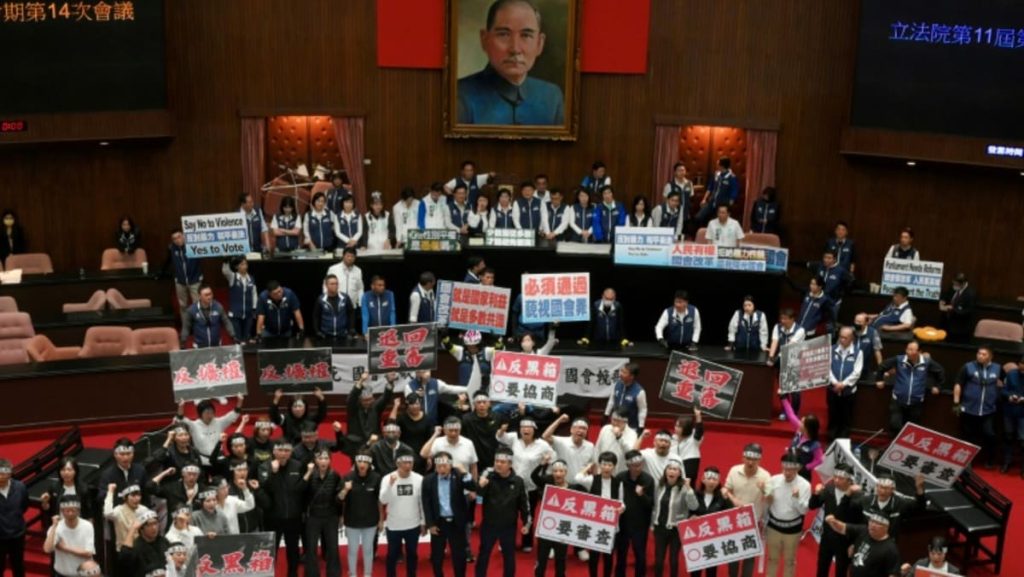Protesters outside the Legislative Yuan in Taiwan gathered to express their anger and frustration with the parliament’s recent actions. The crowd swelled to thousands, with signs declaring their disdain for the institution. Many cited the country’s history of fighting for democracy and expressed concern that recent amendments could undermine those hard-earned freedoms. Retiree Cheng Li-lin highlighted the danger of turning the parliament into a dictatorial entity, while drag queen Nymphia Wind called for respect for democratic procedures.
The call for parliamentary reform was echoed by student Lin Pei-ying, who emphasized the importance of upholding democracy in a respectful manner. Despite supporting reform, many were outraged by the violence that erupted inside the parliament building. Lawmakers from the ruling Democratic Progressive Party (DPP) and the opposition Kuomintang (KMT) were reportedly injured in the altercation, prompting swift protests outside the Legislative Yuan. The incident has sparked a wave of activism among DPP supporters and concerned citizens.
The unrest outside the parliament points to a growing divide within Taiwanese society over the direction of the country’s democracy. While the government has been lauded for its democratic achievements, recent actions by parliament have raised serious concerns about the erosion of democratic principles. Many fear that the amendments being proposed could lead to a regression in Taiwan’s democratic progress. The outrage expressed by protesters reflects a broader sentiment of frustration and disillusionment with the current state of affairs.
The protests outside the Legislative Yuan underscore the need for accountability and transparency in Taiwan’s political system. Many are calling for a return to democratic values and a commitment to upholding the rule of law. The violence that erupted inside the parliament serves as a stark reminder of the dangers of political polarization and the potential for authoritarianism to take hold. The events have galvanized a new wave of activism and calls for reform among citizens who refuse to allow their hard-won freedoms to be compromised.
As tensions continue to simmer, it remains to be seen how the government will respond to the demands of the protesters and address the underlying issues that have led to the current crisis. The pressure is mounting for lawmakers to act in the interest of the people and uphold the values of democracy that are so cherished in Taiwan. The protests serve as a wake-up call for those in power to listen to the voices of the people and work towards restoring faith in the political process. Only through genuine dialogue and a commitment to democratic principles can Taiwan hope to overcome its current challenges and move towards a more inclusive and equitable society.
In the face of growing discontent and unrest, the future of Taiwan’s democracy hangs in the balance. The events outside the parliament building have brought to light deep-seated concerns about the state of governance and the need for reform. It is clear that the people of Taiwan are unwilling to accept anything less than a government that upholds the values of democracy and works for the common good. The ball is now in the court of the government to listen to the will of the people and take meaningful action to address their grievances. Only through a renewed commitment to democratic principles can Taiwan overcome its current crisis and move towards a more stable and inclusive political system.


